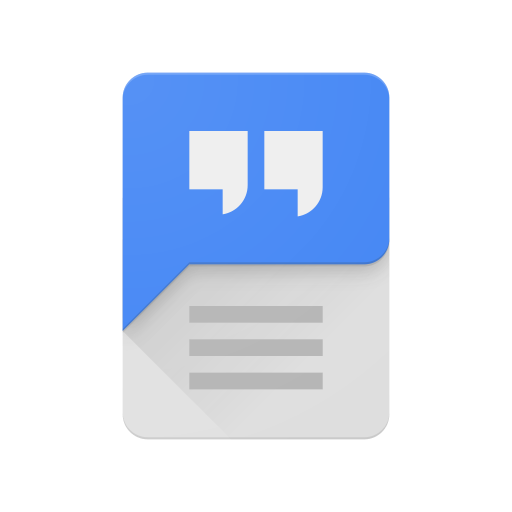German Verbs - German verb conjugation
Effortlessly master German verbs with offline access, comprehensive tenses & voice output for seamless language learning.

- 1.0.0.0 Version
- 1.8 Score
- 488K+ Downloads
- Free License
- 3+ Content Rating
An Ideal Tool for German Learners
German Verbs is the perfect application for anyone eager to learn the German language. It also serves as an excellent companion for travels to German - speaking countries like Germany, Austria, and Switzerland. Whether you're a beginner taking your first steps in German or an advanced learner looking to refine your skills, this app caters to all levels of proficiency.
Explore and look up the conjugations of frequently used German verbs.This tool is perfect for anyone aiming to learn German and serves as a useful resource for trips to Germany, Austria, and Switzerland.
Features include:
•Compact size
•Functions offline
•Supports all tenses (including compound tenses and passive voice)
•Searchable verb forms and translations
•Wildcard search capability
•Grammar reference section
•Audio output using Android's text-to-speech
•Various color themes
•Option to move to SD card
•Ability to mark favorites
•Optimized for tablet use
User - Friendly Design
Grammar Section: A dedicated grammar section provides useful insights and explanations to help you understand the rules governing German verbs.
Voice Output: With voice output functionality (powered by Android's Text - to - Speech, TTS), you can improve your pronunciation. Just tap the speaker symbol next to a verb conjugation to hear the correct pronunciation. Note that an active internet connection is required for this feature.
Multiple Color Themes: Customize your app experience with multiple color themes, making it more visually appealing.
SD Card Compatibility: You can move the app to your SD card to free up internal storage space.
Favorites and History: Mark your favorite verbs for easy access later and review recently viewed verbs to reinforce your learning.
Tablet Optimization: The app is optimized for tablets, providing a seamless and enhanced learning experience on larger screens.
Also offered:
•Pro version featuring additional verbs
•German Declension Trainer
•Language learning companion app: Verb Conjugation Trainer
•Language apps in English, French, German, Italian, Portuguese, and Spanish
Enhance your German language skills with this convenient study tool.
ARTICAL--German Verbs for Beginners
Lorena Macedo Jul 26, 2022
Verb Tenses in German
Before you can begin to understand German verbs, you need to understand tenses and conjugation.
Depending on when the action took place and who did it, the verb will have a different ending.
This is known as conjugation; when you take the infinitive verb and change the ending to indicate the person and time an action was taken.
Conjugation
In German, the infinitive verbs are those with -en endings, while in English, they have "to" before them. For example, we have "to kick" (treten) and "to run" (laufen).
So, in English, we conjugate "to run" in present tense third person singular as "he runs", while in German laufen becomes er läuft.
German has six tenses:
present (Präsens)
present perfect (Perfekt)
simple past (Präteritum)
past perfect (Plusquamperfekt)
future (Futur I)
future perfect (Futur II)
The Present Tense (Präsens)
This is the first tense that you will learn in German and it is used to talk about what you are doing right now, what you regularly or always do, something ongoing, and the near future.
Once you have grasped the present tense, you will already be able to express a lot about yourself, your routine, and your upcoming plans.
As with other tenses, the present tense conjugation depends upon the verb stem. For now, however, we will just focus on the tenses, their uses, and a couple of examples.
·Ich lerne Deutsch = I am learning German
·Er hat einen Hund = he has a dog
·Sie kommen nicht - They aren't coming
The last sentence is an example of the present tense being used to talk about something in the near future.
The Present Perfect Tense (Perfekt)
The Perfekt tense is used in German to discuss events that occurred in the recent past (minutes, hours, days, weeks, or months ago), or when you are addressing someone informally. This can be either verbally or in writing, such as in an email.
In order to conjugate verbs in the perfect tense we use the present tense form of the verb sein (to be) or haben (to have) and the past participle. Haben or sein will act as the auxiliary verb, or helping verb, to form the perfect tense.
The past participle is the form of a verb that indicates a completed action.
In English, these end in -d, -ed, or -t, like "kicked" or "slept". In English, as with German, there are irregular verbs to look out for.
In order to form the past participle in German verbs that are regular, add ge- to the beginning of the verb stem and -t to the end.
For irregular verbs, you add ge- to the beginning of the verb stem and -en to the end.
For example:
·Wir sind nach Amerika gefahren = We went to America
·Ich habe ihm meine Nummer gegeben = I gave him my phone number
·Du hast das ganze Essen gegessen - You have eaten all the food
The Simple Past Tense (Präteritum)
The simple past tense, otherwise known as the Präteritum, or preterite tense in English, is used for any event dating further back in the past (years, decades, and centuries ago).
You can also use it when addressing someone formally.
However, please note that many native German speakers do not always follow these grammar rules and can be heard mixing the Perfekt and Präteritum past tenses indiscriminately.
For example:
·Mozart zog 1781 nach Wien um - Mozart moved to Vienna in 1781
·Big Ben wurde 1859 fertiggestellt - Big Ben was completed in 1859
The Past Perfect Tense (Plusquamperfekt)
The Plusquamperfekt, or pluperfect tense, also known as the past perfect tense, describes an action that took place before another action in the past.
The past perfect tense in German is formed just like the present perfect tense, except the auxiliary (again, either haben or sein) is in its simple past tense form.
Which auxiliary you use depends on the verb that follows (again, in past participle form).
For example:
·Der Wolf hatte die Großmutter schon gefressen, als Rotkäppchen ins Haus kam = The wolf had already eaten the grandmother before Little Red Riding-Hood came into the house
·Wir hatten gut gespielt, bis sie verletzt wurde - We had played well until she was injured
The Future Tense (Futur I)
The future tense in German is just like in English when we say "I/you/he/she/it/we/they will..." to talk about a future event.
This is a super easy tense to learn because it only requires you to know the conjugation of werden (will) and then add on an infinitive verb.
For example:
·Wir werden versuchen, langsamer zu essen - We will try to eat more slowly
·Ich werde Ihnen die Antwort sagen - I will tell you the answer
·Gebt und ihr werdet wiederum empfangen = Give, and you will in turn receive
The Future Perfect Tense (Futur II)
Finally, we have the future perfect tense. This, like the other perfect tenses, requires a past participle.
To form the future perfect in German, we use werden + past participle + haben/sein.
Again, this is similar to the English "will have". The only difference is that, as always in German, the non-conjugated verb moves to the end of the clause:
For example:
·Wenn ihr ankommt werden wir ein Hotel gefunden haben = By the time you arrive, we will have found a hotel
·Bis heute Abend werden wir das Geschirr gespült haben = By this evening, we will have done the dishes
Key Conjugation rules to remember in German
Now that you know what verbs are and how the tenses work in German, let's look at conjugating a regular (or weak) verb in the present tense.
First, the German pronouns are as follows:
·ich (I),
·du (you)
·er/sie/es/man (he/she/it/one)
·wir (we)
·ihr (you plural)
·sie/Sie (they/ you)
Next, you need to know if the verb you want to use is strong or weak, in German terms, otherwise referred to as regular or irregular.
Weak, or regular verbs, are those which follow a conjugation pattern. This means you can learn a set of verb endings and apply them to all regular verbs.
We conjugate verbs by removing the -en ending and adding a new ending.
Strong verbs, also known as irregular verbs, do not follow the usual pattern, so they need to be learned individually.
Conjugating Lernen - to learn
So, using lernen as an example of a weak, or regular verb, we first remove the -en ending to get the verb stem lern-.
Then, we add our regular verb endings, -e, -st, -t, -en, -t, -en.
·ich lerne
·du lernst
·er/sie/es lernt
·wir lernen
·ihr lernt
·sie lernen
Pretty easy, right? Richtig, das ist einfach!

Other Types of German Verbs
Irregular verbs
Strong verbs take on irregular conjugated forms, meaning they do not follow the regular pattern.
Unfortunately, there are some very important and common verbs in German that are irregular.
We will provide an example later on.
Inseparable prefixes
Verbs whose initial syllable is never detached from the verb root in any tense or conjugated form is known as an inseparable prefix verb.
These are always unstressed syllables, meaning you do not emphasize this part of the word when it is said aloud.
They are almost always small groups of letters that form a specific meaning. For example, the English prefixes "pre-" (before) or "dis-" (not/none).
Prefixes that are always inseparable are -be, -emp, -ent, -er, -ge, -miss, -ver, -zer.
Examples include:
·bezaubern (to enchant)
·empfehlen (to recommend)
·entfliehen (to flee from)
·erneuern (to renew)
·gefallen (to be pleasing)
·missfallen(to displease)
·verhungern (to starve)
·zerstören (to destroy)
reflexive verbs
A reflexive verb is a verb whose direct object is the same as its subject. Or, more plainly, it is when the speaker is doing the action to themselves.
For example:
·ich wasche mich = I wash myself
You can spot a reflexive German verb by its use of "sich" (self) in the infinitive form.
·sich ärgern - get angry
·sich freuen- be happy
·sich hinlegen - lie down
These verbs are conjugated by changing the sich to suit the person doing the action. Then, add the appropriate verb endings. Don't worry, you do not need to worry about that today!
modal verbs
A modal verb is a type of verb that contextually indicates likelihood, ability, permission, request, capacity, suggestion, order, obligation, or advice.
This might sound like a lot to take in. Luckily, in German, there are only 6 of these words to learn.
The 6 modal verbs in German are:
1.können - can
2.dürfen - may
3.mögen - like
4.müssen - must
5.sollen - should
6.wollen - want
Aside from specific idiomatic expressions, each of these words has a distinct meaning.
The Most Common German Verbs
So far, you have learned the basics of German verbs and tenses, including the definitions of the infinitive, auxiliary and past participles, and different kinds of verbs.
Moreover, you know that German verbs are conjugated to express the time of the action and who took it.
Now, you are ready to start learning some common and useful German verbs.
On top of this, you will learn the conjugation of sein, the most important German verb of all, in the present tense.
Mögen - to like.
This is not only one of the most common words in German, but it is very useful for expressing yourself, your likes (and dislikes), and wishes for the future.
·Ich mag.../ Ich mag nicht... - I like/ I don't like...
·Ich mag Fußball spielen - I like to play soccer
·Ich mag es nicht, wenn du das tust - I don't like it when you do that
·Wir möchten ein Kind adoptieren - We would like to adopt a child
Können - to be able to
With the ability to conjugate this German verb and the knowledge of a few good infinitive verbs, you can already express so much.
·Ich kann… / Ich kann nicht… - I can/ I cannot...
·Ich kann nicht flirten - I can not flirt
·Wir können tanzen - we can dance
·Ihr könnt Deutsch lernen - they can learn German
Haben - to have
As you have seen, this verb is not only very common and useful but vital for the formation of certain tenses, just as in English.
Whether you are using the verb "to have" for its meaning or its use as an auxiliary, you will need to get comfortable with the conjugation and spotting how the word is being used in a sentence.
·Wir haben die Katze verloren - we have lost the cat (auxiliary)
·Ich habe langes Haar - I have long hair (literal meaning)
·Ich habe nicht geschlafen - I have not slept (auxiliary)
·Ihr habt viel zu tun - you have a lot to do (literal meaning)
·Sie haben die Tür offen gelassen - they have left the door open (auxiliary)
Getting the hang of it?
English speakers have the advantage here of being able to compare the use of "have" in these sentences to their English translations.
You will notice it works the same way.
The Verb Sein: The Most Important German Verb
Pronoun Conjugation: Translation in English
·ich bin - I am
·du bist - you (singular, informal) are
·er/sie/es/man ist - he/she/it/ one is
·wir sind - we are
·ihr seid - you (plural, informal) are
·Sie sind - they/you (formal) are
If you are new to learning a foreign language, you may never have seen verb tables before. Do not be overwhelmed, it is more straightforward than it might look.
Essentially, the first words which are not highlighted are the German pronouns.
The second words, which are highlighted, are the verbs in their conjugated forms in the present tense and matching the corresponding pronoun.
For example, the first line has ich, which means "I" and bin, "am". An example of this conjugation in a sentence is:
·Ich bin größer als mein Vater - I am taller than my father
Sein is a strong verb, or in other words, it is one of the many German irregular verbs that you need to be aware of.
This means that it does not follow the regular verbs in their conjugation pattern, as shown above.
Remember, verbs that take sein in the present tense will also take it as the auxiliary in the past perfect tense.
For example:
·ich war gereist - I had traveled
Comments
The app's adaptability to individual learning preferences makes mastering German verbs less intimidating. It offers versatile ways to interact with the content, making it suitable for both novice and advanced learners. By presenting a vast collection of verbs in a structured and accessible manner, it encourages deeper language practice.
I have been using this app for years to learn German, it is great, a solid build, and I love that it includes so much detail on each verb. I wanted to give one small piece of feedback to the makers: there are a few verbs missing from the app that I thought could/should be added: Flies sen, Benenson, anbauen, erhitzen, abdecken, hinzugeben, standalone, kümmern, ausdenken. Thanks!
Good app overall. It has the elementary features, except one, which is the possibility to export to text, csv, favorite verbs with their favorite tenses. When I changed my phone, I had to manually copy some favorite verbs to the other phone. And No, I do not want to back up through any other web server (google or anything). Looking forward to advance, so I can move to the version with more verbs.
This app truly shines. It offers fantastic features. An app focused on adjectives and adverbs would be amazing too. Just imagine the creativity it could unleash! It could help users expand their vocabulary in exciting ways. Engaging with language becomes even more fun with that kind of tool. The possibilities are endless!
- Version1.0.0.0
- UpdateJul 10, 2025
- DeveloperAppicenter LLC
- CategoryEducation
- Requires AndroidAndroid 6+
- Downloads488K+
- Package Nameorg.muth.android.conjugator_demo_de
- Signaturebda5d4a209793197de3070fc27d0f5ad
- Available on
- ReportFlag as inappropriate
-
NameSizeDownload
-
320.57 KB
-
359.28 KB
-
475.28 KB

























